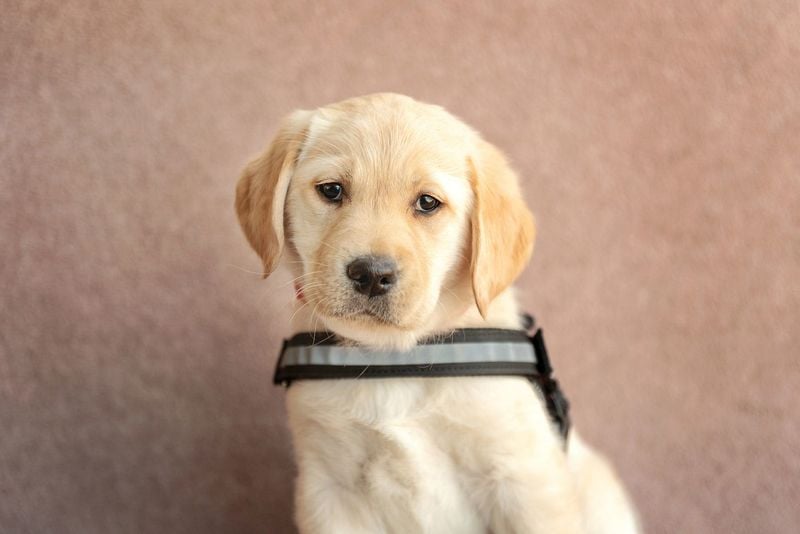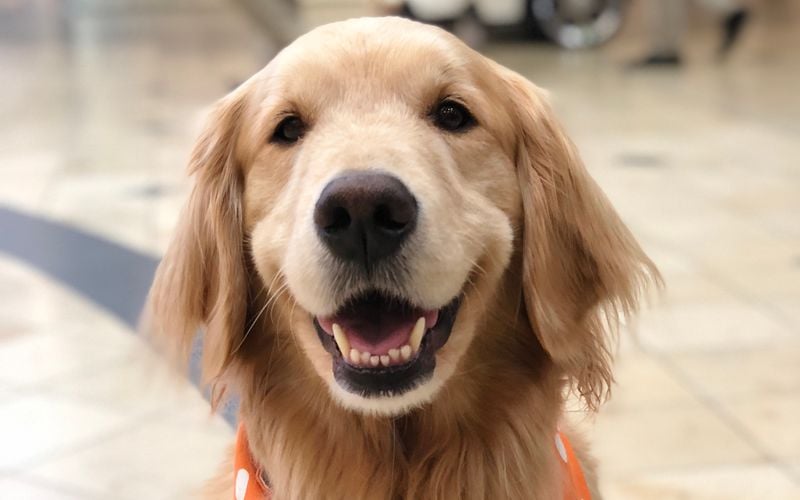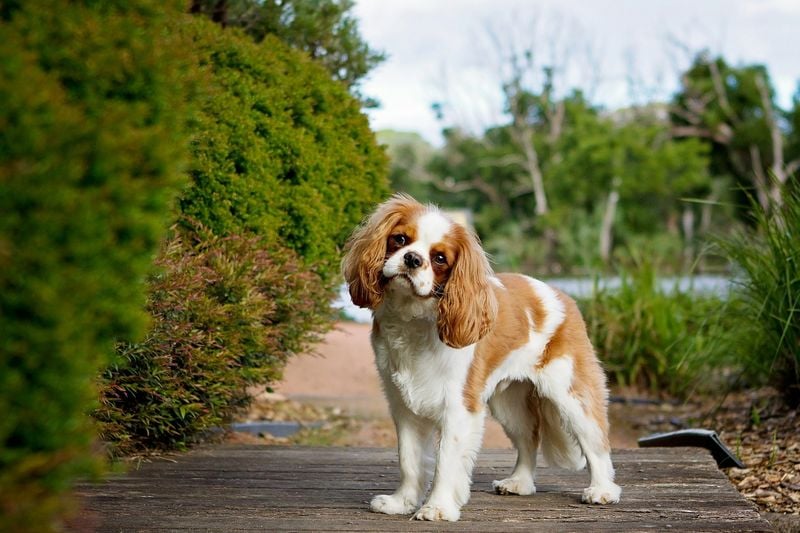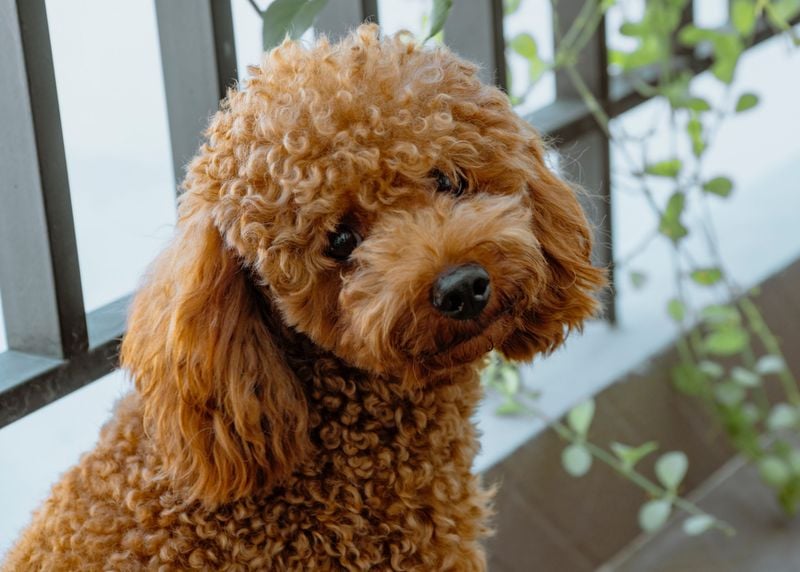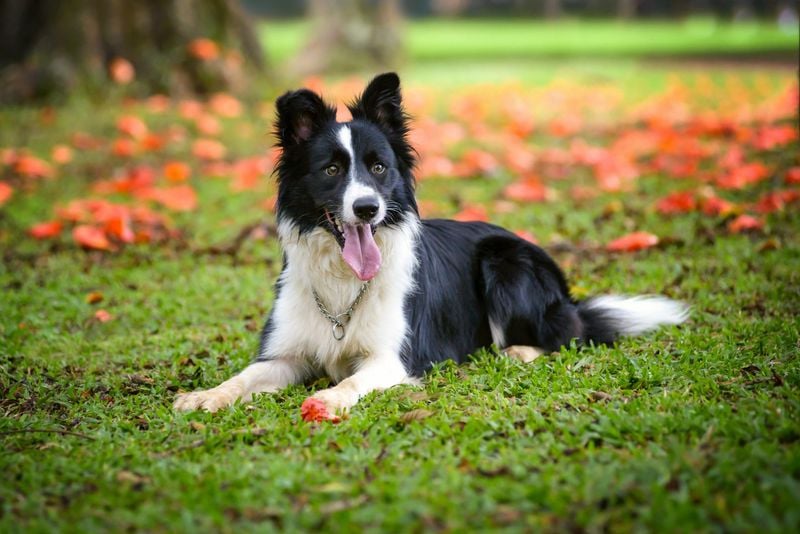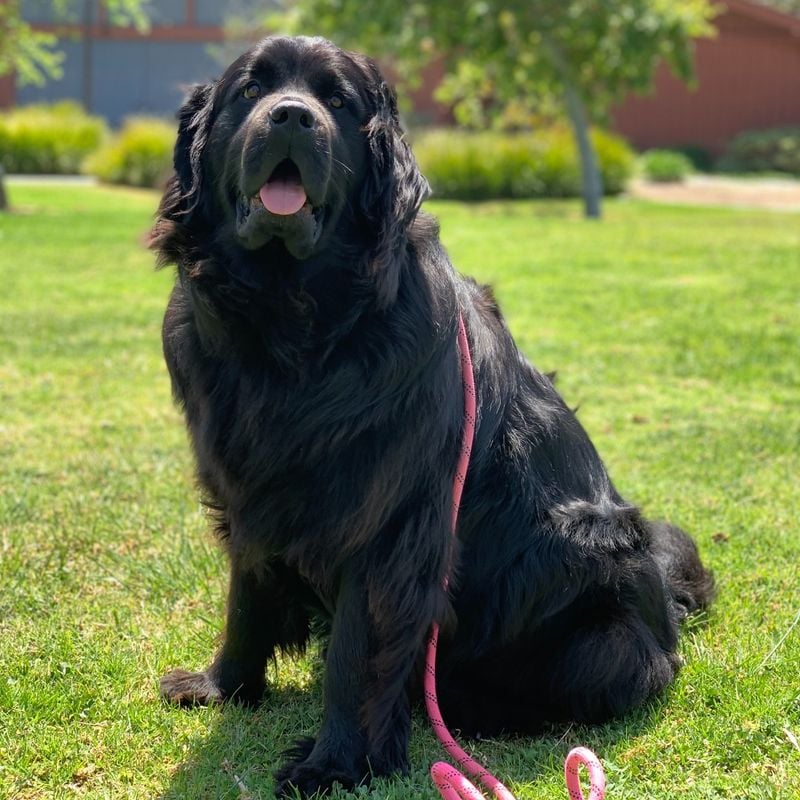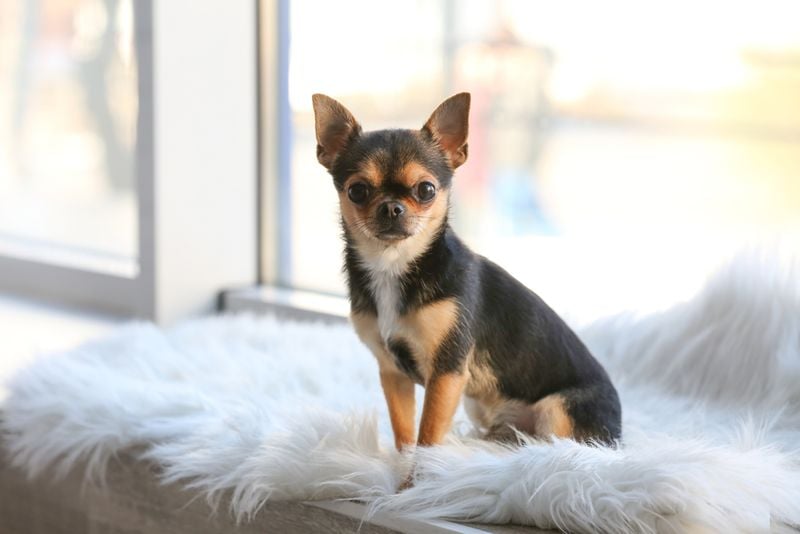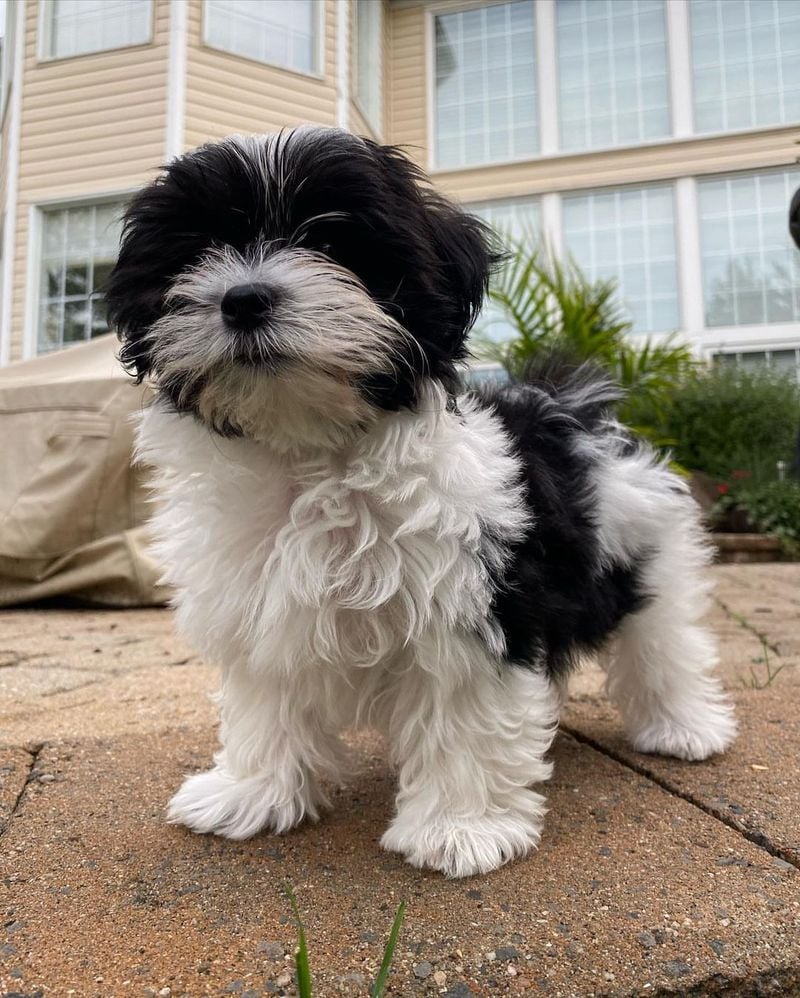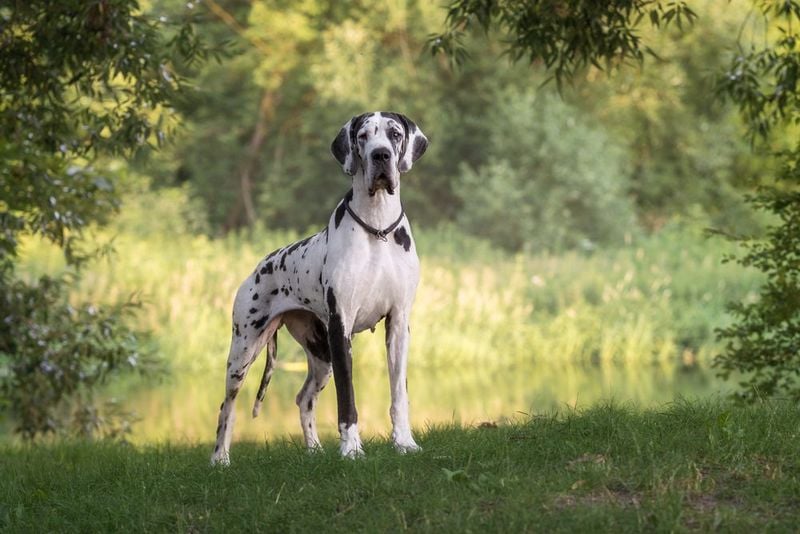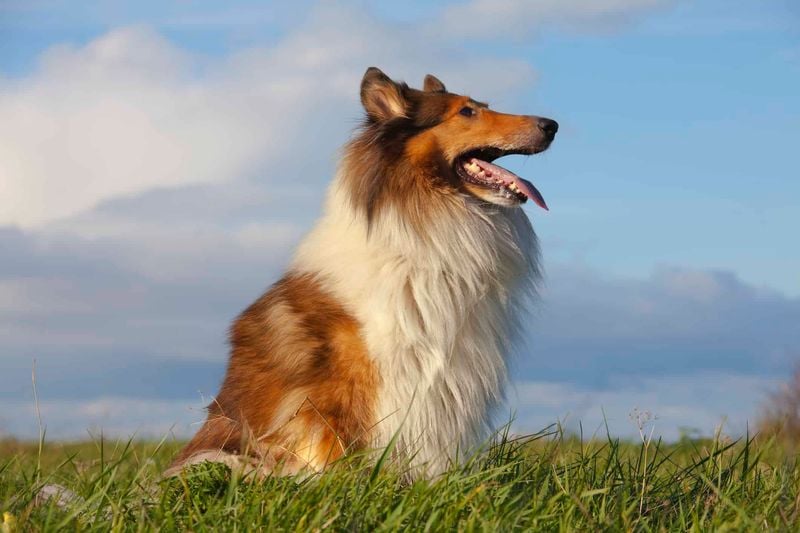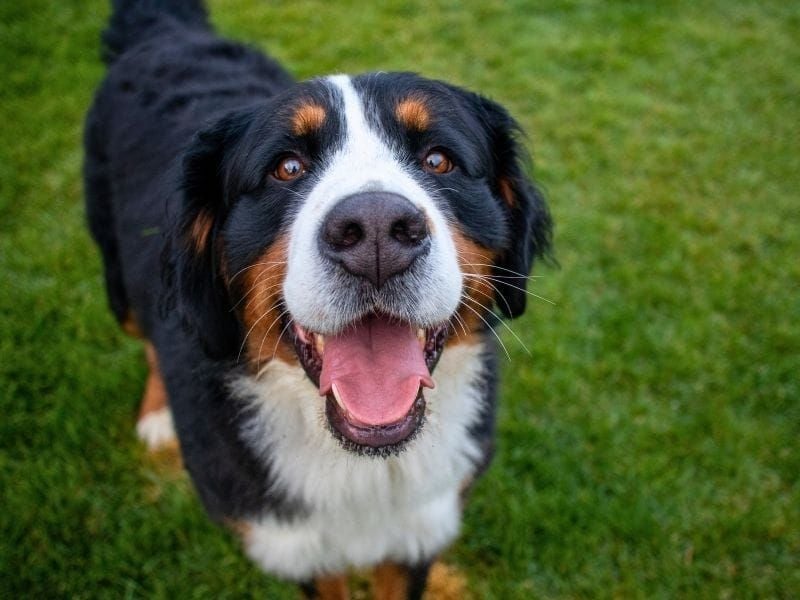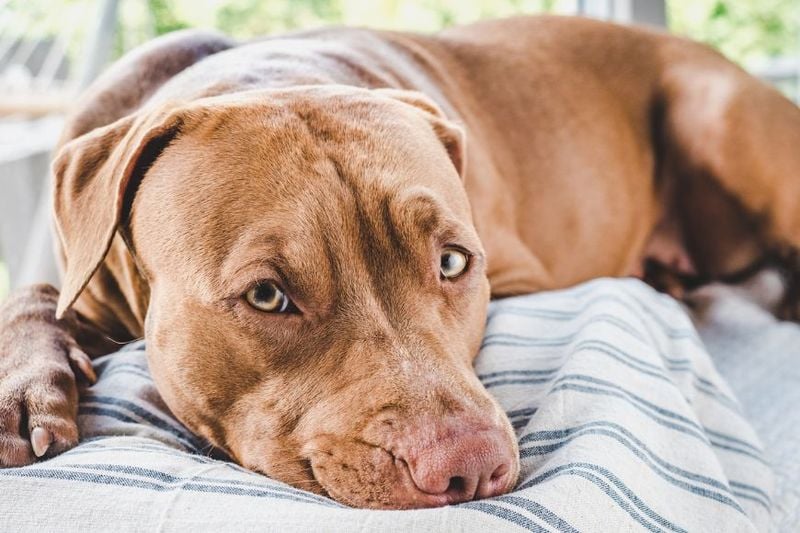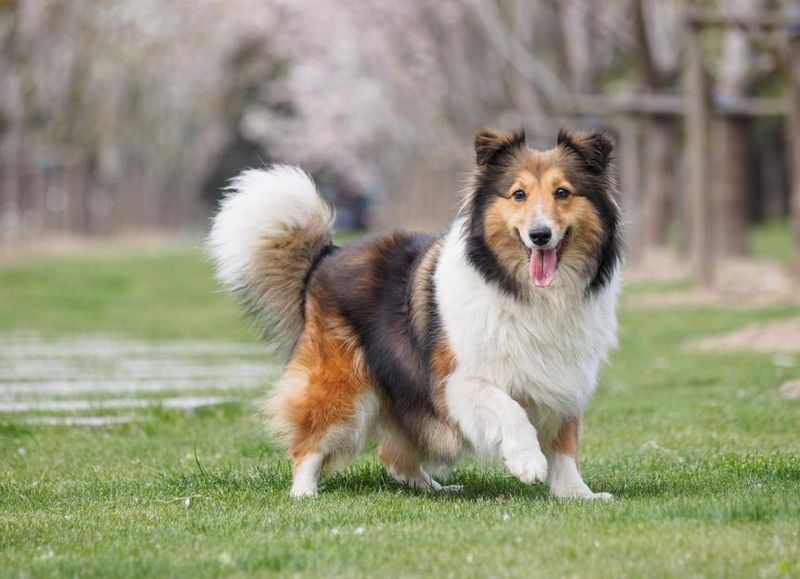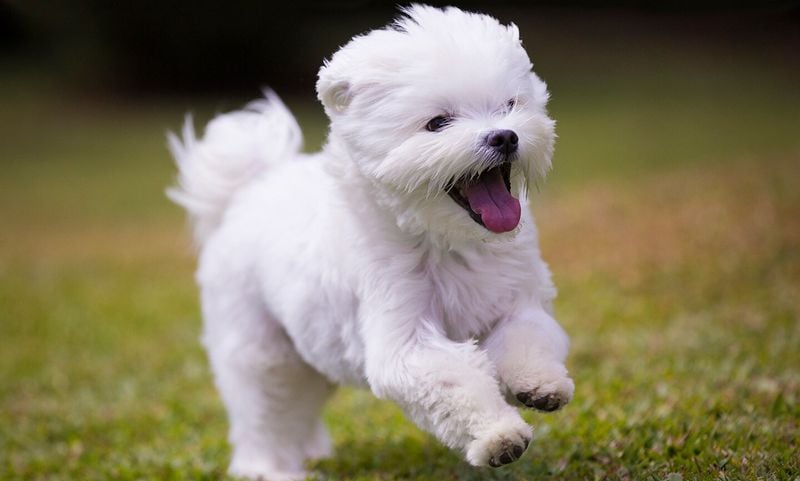21 Dog Breeds Proven to Help With Stress and Sadness
Dogs have an amazing ability to lift our spirits when we’re feeling down. These furry companions offer unconditional love that can transform our emotional state from stressed to blessed in minutes.
Research shows certain dog breeds have special qualities that make them particularly good at helping humans through tough emotional times. Here’s a look at 21 breeds that excel at providing comfort and joy when we need it most.
1. Labrador Retriever: The Loyal Mood-Lifter
America’s favorite dog for good reason! Labs combine intelligence with an eagerness to please that makes them exceptional emotional support animals. Their intuitive nature helps them sense when you’re feeling blue.
These golden-hearted pups will nudge a toy into your hand or rest their head on your lap at just the right moment. Labs thrive on human connection and regular exercise.
Fun fact: Despite their name, Labrador Retrievers were actually developed in Newfoundland, not Labrador! Their waterproof coat and friendly temperament make them perfect companions for outdoor adventures that boost your mood naturally.
2. Golden Retriever: Sunshine in Fur Form
Meeting a Golden’s gaze is like staring into pools of liquid compassion. These natural-born therapists seem to understand human emotions better than most people do, offering a paw or nuzzle precisely when your spirits need lifting.
Golden Retrievers possess a remarkable patience that makes them ideal for anyone battling anxiety or depression. Their gentle demeanor works wonders with children and adults alike.
Goldens bring structure to chaotic lives through their need for daily walks and playtime. This routine helps pull owners from emotional slumps while their unwavering loyalty provides a constant in life’s unpredictable moments.
3. Cavalier King Charles Spaniel: Royal Comfort Provider
Bred specifically to warm the laps of nobility, Cavaliers have perfected the art of companionship over centuries. Their silky coats and expressive eyes create an instant connection that soothes frazzled nerves within minutes of contact.
Unlike more energetic breeds, these gentle souls are content to cuddle for hours, making them perfect for those days when getting out of bed feels impossible. Their moderate exercise needs mean they don’t demand extensive outdoor time.
Cavaliers adapt remarkably well to your emotional state – playing when you need distraction or quietly snuggling when tears fall. Their size makes them perfect apartment dwellers while still providing substantial emotional support.
4. Poodle: The Brilliant Emotional Detective
Poodles break the stereotype of being just pretty show dogs. Behind those elegant curls lies one of the most intelligent canine minds, capable of reading subtle changes in your emotional state before you’ve even recognized them yourself.
Available in three sizes (standard, miniature, and toy), there’s a poodle to fit any living situation. Their hypoallergenic coat makes them accessible to allergy sufferers who need emotional support.
What truly sets poodles apart is their problem-solving ability. When sadness strikes, they’ll actively try different approaches to cheer you up – bringing toys, performing tricks, or simply offering silent companionship until they find what works.
5. Border Collie: Activity Partner for Mental Health
Border Collies offer a unique approach to emotional healing through action rather than just comfort. For those whose depression manifests as lethargy, these energetic companions provide the motivation to get moving when nothing else can.
Their remarkable intelligence creates a special bond – they don’t just understand your commands but seem to comprehend your emotions on a deeper level. Border Collies thrive on mental challenges and physical activity.
Studies show that the combination of exercise and animal companionship significantly reduces stress hormones. A Border Collie’s enthusiastic invitation to play or walk becomes a daily ritual that pulls many owners from the depths of emotional darkness into the healing power of movement.
6. Pug: The Compact Comedian
Those wrinkled faces and expressive eyes hide a natural comedian with perfect timing. Pugs seem to know exactly when to perform their signature head tilts, snorts, and playful antics to transform tears into laughter.
Unlike working breeds, Pugs were developed solely for companionship, making them masters of the art. Their moderate exercise needs make them suitable for apartment living or days when emotional exhaustion limits your energy.
Pugs possess an uncanny ability to mirror your emotions while gently nudging you toward a more positive state. Their warmth against your body during cuddle sessions triggers oxytocin release – the “love hormone” that naturally combats stress and anxiety.
7. Bichon Frise: The Cotton-Ball Therapist
Resembling animated cotton balls, Bichons bring an irresistible cheerfulness into any environment they enter. Their perpetually happy demeanor works like emotional contagion, making it difficult to maintain negative feelings in their presence.
Bichons were historically kept on sailing ships as companions, developing an adaptability that serves them well as therapy dogs today. Their hypoallergenic coat makes them accessible to most people seeking canine comfort.
What makes Bichons exceptional stress-relievers is their perfect balance of playfulness and calm affection. They’ll engage in silly antics when distraction is needed, then settle into quiet companionship when your emotional state requires gentler support.
8. Newfoundland: The Gentle Giant Protector
Weighing up to 150 pounds, Newfoundlands offer a unique form of comfort through their sheer size and protective presence. There’s something deeply reassuring about hugging a dog that feels like a living security blanket during times of emotional distress.
Known as “nanny dogs,” Newfies possess an instinctive nurturing nature that extends to humans of all ages. Their patient temperament makes them excellent companions for those with anxiety disorders or PTSD.
Research indicates that physical contact with large dogs can significantly lower blood pressure and heart rate during stressful episodes. A Newfoundland’s deep, rumbling breath during cuddle sessions creates a natural form of guided breathing that helps regulate emotions.
9. Chihuahua: Pocket-Sized Emotional Support
Don’t let their tiny size fool you – Chihuahuas pack enormous emotional intelligence into their small frames. These pint-sized companions form extraordinarily strong bonds with their humans, often seeming to anticipate emotional needs before they’re expressed.
Chihuahuas excel at providing comfort through physical closeness, happily nestling against your neck or curling into the crook of your arm. Their small size makes them ideal for those with limited mobility or living space.
Many Chihuahua owners report that the warmth of these little dogs against their chest during anxiety attacks provides immediate relief. Their alertness to environmental changes often helps ground those experiencing dissociation or panic episodes.
10. Yorkshire Terrier: Brave Little Mood Booster
Yorkies approach emotional support with the confidence of dogs ten times their size. Their fearless personalities and unwavering loyalty create a protective bubble around their humans during vulnerable moments.
Originally bred as ratters in Victorian-era textile mills, Yorkies retain a work ethic that translates into determination to improve your mood. They’ll persistently offer toys, kisses, or playful antics until they detect a positive shift in your emotional state.
Their portable size makes them excellent travel companions for those who experience anxiety away from home. Many therapists note that stroking a Yorkie’s silky coat provides sensory grounding that helps interrupt negative thought patterns.
11. Shih Tzu: The Ancient Comfort Companion
Bred specifically for companionship in Chinese imperial courts, Shih Tzus carry centuries of human-pleasing genetics in their DNA. Their primary purpose has always been emotional connection rather than working or hunting tasks.
Shih Tzus possess an almost supernatural ability to sense when you’re having a bad day. They’ll adjust their energy to match your needs – from playful distraction to quiet presence.
Their moderate exercise requirements make them suitable for those whose mental health challenges limit physical activity. Many therapists recommend the rhythmic action of brushing a Shih Tzu’s flowing coat as a mindfulness exercise for anxiety sufferers, creating a mutual bonding activity that benefits both human and dog.
12. Havanese: The Velcro Dog for Emotional Support
Havanese earned their nickname “velcro dogs” by their tendency to stick close to their humans at all times. This natural shadowing instinct makes them exceptional companions for those battling loneliness or abandonment fears.
Their playful, slightly clownish personality brings unexpected moments of joy even on the darkest days. Havanese seem to possess an internal radar for when humor versus quiet support is needed.
What makes Havanese particularly valuable for emotional support is their adaptability to different living situations and activity levels. They’re equally happy in apartments or houses, with active owners or those with limited mobility, making them accessible to people in various life circumstances who need their special brand of comfort.
13. Great Dane: The Emotional Support Horse
Sometimes called “Apollo of dogs,” Great Danes provide a unique form of emotional support through their imposing yet gentle presence. Their size creates a sense of security that smaller breeds simply cannot match.
Despite their massive frames, Danes move with surprising grace and gentleness around humans in distress. Many owners report feeling an immediate calming effect when leaning against these gentle giants during anxiety episodes.
Great Danes require less exercise than many smaller breeds, making them suitable apartment dwellers despite their size. Their natural dignity seems to lend perspective to human problems – somehow, troubles feel more manageable when shared with a dog whose heart is as big as their body.
14. Boxer: The Energetic Mood Transformer
Boxers approach emotional support with boundless enthusiasm and a clown-like personality that makes maintaining sadness nearly impossible. Their expressive faces – complete with wrinkled foreheads and soulful eyes – create a visual connection that resonates deeply with humans.
Unlike some therapy dogs who primarily offer quiet comfort, Boxers actively work to change your emotional state through play and interaction. Their natural goofiness often breaks through depression’s heaviest clouds.
Boxers maintain a youthful exuberance well into adulthood, providing a reminder of joy’s persistence even in difficult times. Their protective instinct creates a safety bubble around their humans, particularly valuable for those dealing with trauma or anxiety disorders.
15. Collie: The Intuitive Emotional Shepherd
Made famous by Lassie, Collies possess an almost supernatural intuition about human emotional states. Their herding heritage translates into a natural protectiveness toward humans experiencing emotional distress.
Collies offer a unique combination of intelligence and sensitivity that allows them to respond appropriately to different emotional needs. They know when to provide active support through play and when quiet presence is more beneficial.
Research shows that stroking a Collie’s luxurious double coat produces significant reductions in stress hormones like cortisol. Their attentive gaze creates a feeling of being truly seen and understood – something many people with depression or anxiety desperately need.
16. Cocker Spaniel: The Soulful-Eyed Healer
Those legendary Cocker eyes seem to look straight into your soul, creating an immediate emotional connection. Their expressive gaze has a remarkable ability to make you feel truly seen during times when depression creates feelings of invisibility.
Cockers combine playfulness with an intuitive sense of when quiet companionship is needed instead. Their size makes them substantial enough for satisfying hugs while remaining portable for those with limited space or strength.
The rhythmic motion of stroking a Cocker’s silky ears provides sensory grounding that therapists often recommend for anxiety management. Their moderate exercise needs make them adaptable to various living situations and energy levels.
17. Bernese Mountain Dog: The Steadfast Emotional Anchor
Berners offer emotional support through their steady, unflappable presence. Their substantial size (85-110 pounds) creates a physical anchor during emotional storms – many owners describe leaning against their Berner during panic attacks.
Originally bred as farm dogs in Switzerland, Bernese Mountain Dogs carry a calm confidence and work ethic that translates into reliable emotional support. They’re less prone to the excitability of some breeds, providing consistent comfort.
Their tri-colored coat isn’t just beautiful – the repetitive action of brushing it creates a mindfulness activity that therapists recommend for anxiety management. Berners naturally position themselves where they can maintain physical contact with their humans, providing constant reassurance through touch.
18. American Pit Bull Terrier: The Misunderstood Emotional Rock
Beneath media stereotypes lies one of the most emotionally attuned breeds available. Pit Bulls form extraordinarily strong bonds with their humans, developing an almost uncanny awareness of emotional shifts.
Their muscular build provides a sense of physical security that helps many anxiety sufferers feel protected. The contrast between their powerful appearance and gentle nature creates a powerful metaphor for emotional strength.
Pit Bulls approach emotional support with unwavering loyalty and surprising sensitivity. Many owners with PTSD or depression report that their Pit Bull’s persistent affection helped them through their darkest moments when human connections felt impossible. Their natural enthusiasm for life serves as a daily reminder of joy’s possibility.
19. Dachshund: The Tenacious Mood Elevator
Dachshunds tackle emotional support with the same determination they once used hunting badgers. Their tenacity translates into a refusal to let their humans remain sad – they’ll employ an arsenal of antics until they detect a smile.
Their compact size makes them excellent lap warmers, providing comforting pressure and warmth that naturally reduces anxiety. Many Dachshund owners report that the weight of their dog on their chest helps regulate breathing during panic attacks.
Originally bred to work independently, Dachshunds bring a unique problem-solving approach to emotional support. They seem to view your sadness as a puzzle to be solved through persistence and creativity, whether through playful distractions or dedicated snuggles.
20. Shetland Sheepdog: The Sensitive Emotional Guardian
Shelties possess an emotional intelligence that seems almost telepathic at times. Their herding heritage translates into a protective instinct toward humans experiencing emotional vulnerability.
Unlike more boisterous breeds, Shelties offer a gentle, unobtrusive form of support that respects personal space while maintaining connection. Their alert sensitivity to environmental changes makes them excellent companions for those with anxiety disorders.
Shelties excel at providing consistent routine – something therapists often recommend for depression management. Their moderate exercise needs create healthy structure without overwhelming demands. Many owners report that the rhythmic action of brushing their Sheltie’s magnificent coat becomes a soothing ritual that calms racing thoughts.
21. Maltese: The Ancient Anxiety Alleviator
For over 2,000 years, Maltese dogs have specialized in human companionship. This ancient breed carries centuries of selection for emotional attunement in their DNA, making them naturals at detecting and responding to human distress.
Their small size allows them to provide comfort through physical closeness without overwhelming those who might find larger dogs intimidating. Maltese excel at lap therapy, with their warm bodies creating a calming pressure.
The striking contrast of their snow-white coat against their dark eyes creates a visual focus point that many anxiety sufferers find grounding during overwhelming moments. Their playful yet gentle temperament provides emotional balance – encouraging activity when needed while respecting quieter moments.

